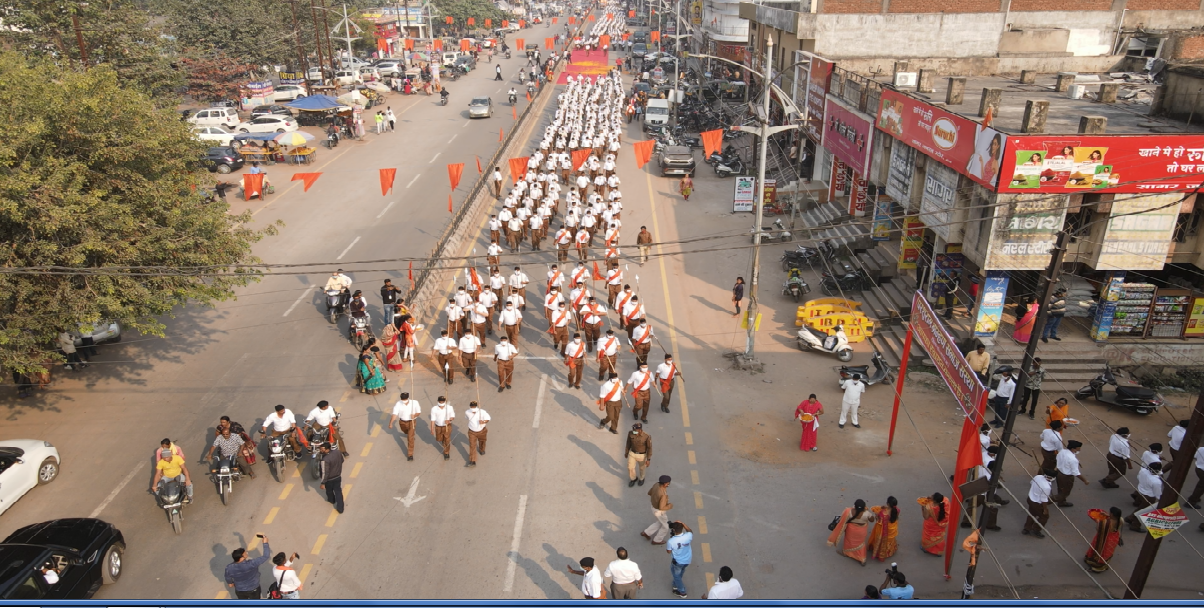Chennai. The district administration of Nilgiris, Coimbatore, Tirupur, Nagapatinnam, Salem and 11 other places have not yet given permission for the route march supposed to be held on October 22. This is RSS’s pathsanchalan, or annual route march. The decision of the administration is in violation of Madras High Court orders. The denial of permission has sparked a legal battle and raised questions about the state government’s stance on the matter.
On October 16, 2023, the Madras High Court issued a collective order instructing the Tamil Nadu police to grant permission for RSS route marches under reasonable conditions. Two days later, the Madurai bench of the Madras High Court granted permission for RSS route marches in 11 southern districts but denied permission for similar marches in Madurai, Sivaganga, and Ramanathapuram districts.
The High Court observed that the state government appeared to be intentionally opposing the RSS route march, stating, “The rejection order passed subsequently clearly shows that the State has no intention to permit this organisation to conduct the rally on October 22 or on October 29, 2023”. The court criticised the state’s rejection orders, noting that they were based on general reasons that would apply year-round rather than specific concerns about the event.
R. Thiagarajan, representing the RSS, revealed that they initially approached the Nilgiris police on September 13 to seek permission for the RSS route march scheduled for October 22. The district superintendent of police in Nilgiris sent a set of questions regarding the proposed event on October 11. Despite providing responses to all the queries, their application was ultimately denied.
Justice G Jayachandran, in his detailed order, cited previous cases and orders issued by the Supreme and High Courts to support the RSS’s case. The court emphasised that the presence of religious structures like mosques and churches along the procession route should not be a reason to deny permission. It invoked Section 180-A of the District Municipalities Act 1920, which mandates that roads or streets should be accessible to people of all religions, castes, and creeds. Merely because one religious group is dominating in a particular locality, it cannot be a ground to prohibit celebrating religious festivals or taking processions of other religious groups through those roads. If it is to be accepted, then a day will come when a particular religious group, which is predominantly occupying the area, will not allow the people belonging to other religious groups to use the roads for movement, transportation, or normal access. Even marriage processions and funeral processions would be prohibited/ prevented, which is not good for our society.” The court argued that preventing religious processions based on the religious composition of an area would be detrimental to society and contrary to principles of secular and democratic governance.
After their initial attempts to secure permission, the RSS approached the Director General of Police on October 19, 2023, at 10:30 AM, seeking an appointment. Despite the scheduled appointment, the Director General of Police did not meet with the RSS representatives and instead requested copies of the court’s judgement and related documents. This prompted the RSS to take action.
Representaive of the RSS also pointed out “it is your duty to comply with the directions issued in the judgement of Hon’ble High Court dated October 16, 2023, and even in spite of specific direction by the hon’ble High Court to grant permission at least three days prior to the date of rally you haven’t complied with or obeyed the judgement passed by the hon’ble court dated October 16, 2023. I therefore call upon you to obey and comply with the common order passed by the Hon’ble High Court in batch of Writ Petitions dated October 16, 2023, especially in W.P. No. 29732 of 2023, by granting permission for my client to conduct the route march on October 22, 2023 and the consequential public meeting immediately failing, which my client will be constrained to proceed with contempt proceeding at your cost”.
In response to the continued denial of permission, R. Thiagarajan issued a contempt notice to the Director General of Police, Home Secretary, and the concerned district Superintendents of Police, along with Inspectors and others. The notice emphasised the duty of the state to comply with the High Court’s directive and called upon the authorities to obey and comply with the court’s order.



